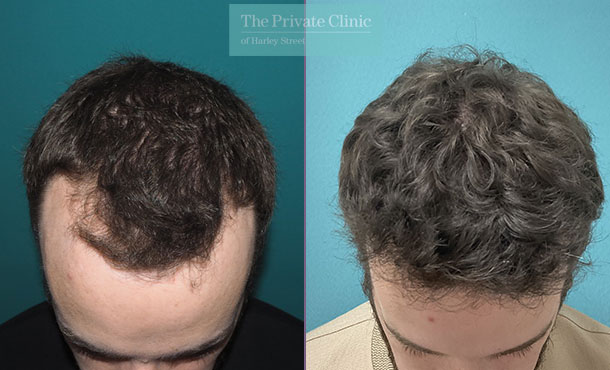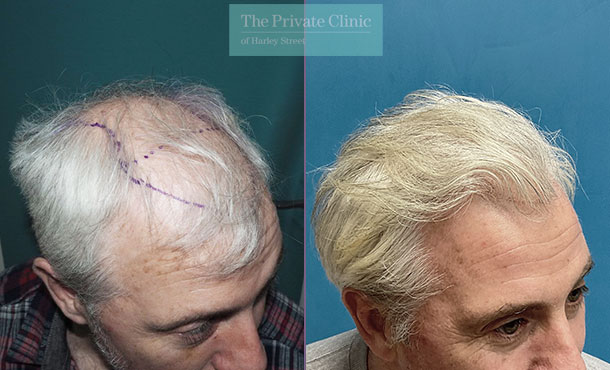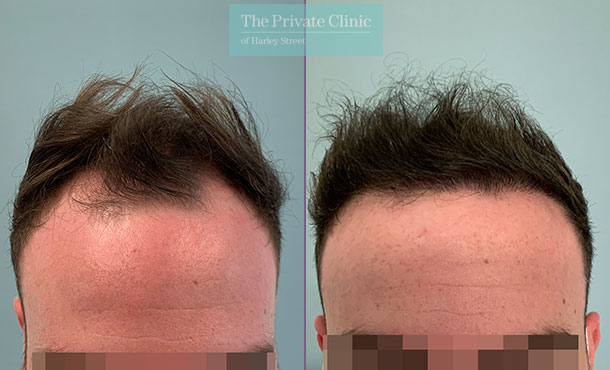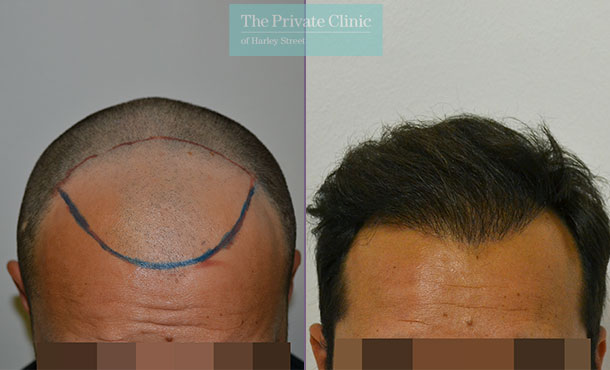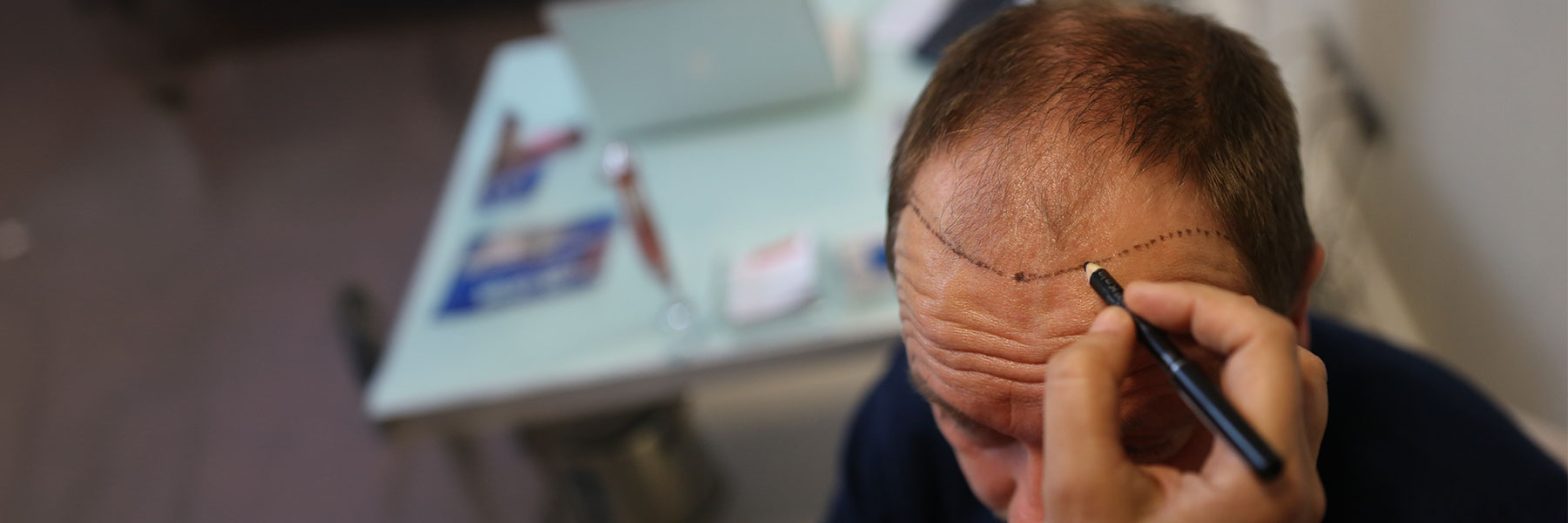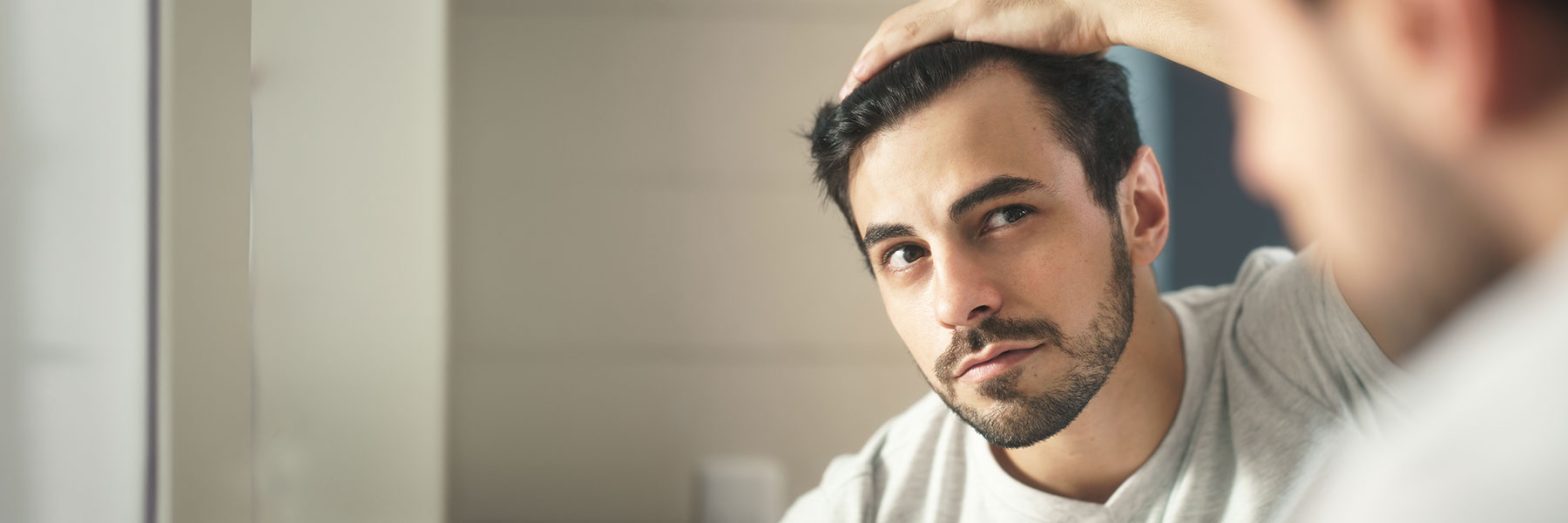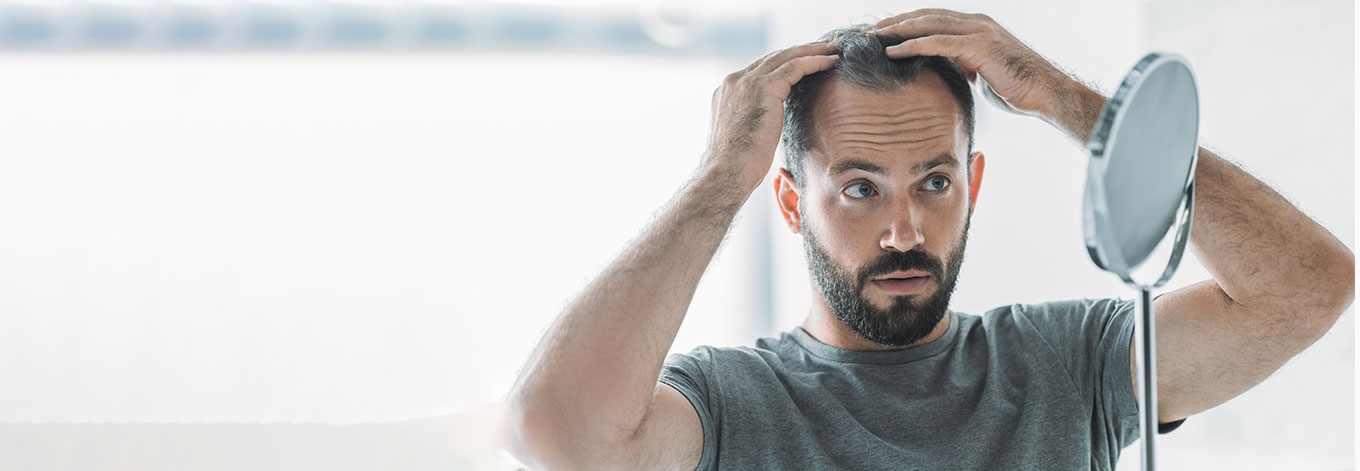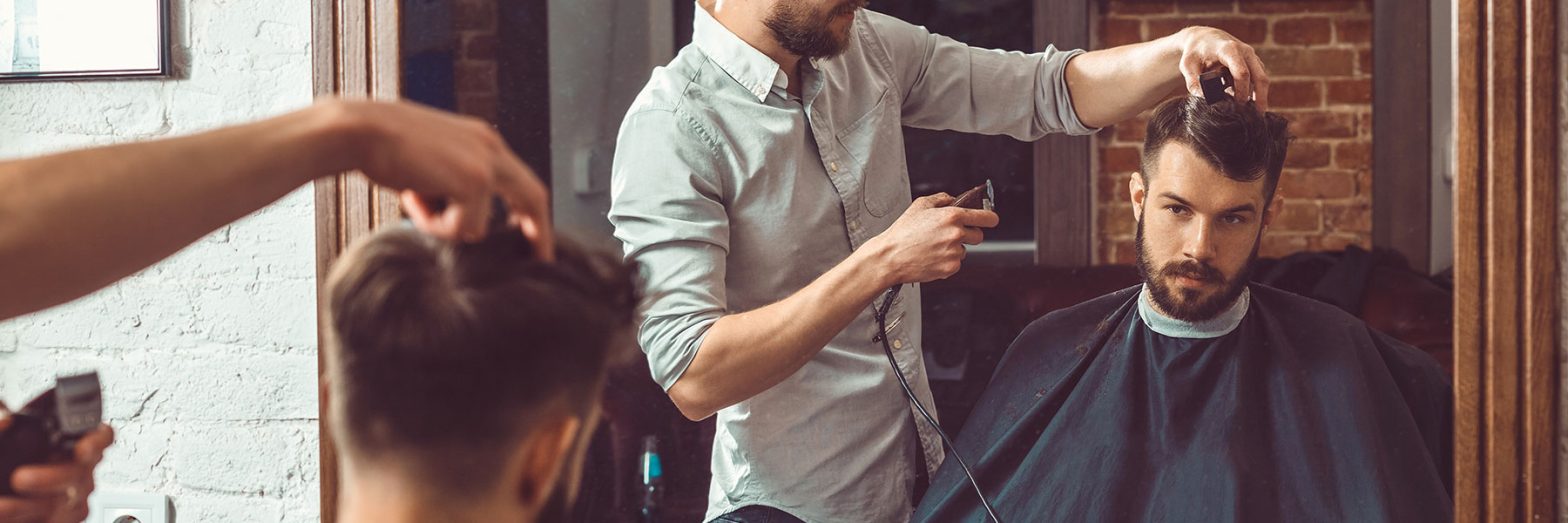
Hair Transplant After 10 Years – What to Expect Long Term
A hair transplant procedure that has been carried out correctly by professional hair transplant surgeons should last a lifetime.
What a hair transplant can’t do however is stop the process of balding. So, whilst the results from your procedure will remain intact, your other existing hair is still at risk.
At The Private Clinic, following a hair transplant procedure, we like to help patients maintain the results of their procedure by offering them advice on hair loss medication they can take and other treatments such as non-surgical hair loss treatment, mesotherapy and calecim treatment which can all help to both preserve your results and lessen the risk of continued balding.
How Long Does a Hair Transplant Last?
A hair transplant is a permanent treatment which means the results will remain in place indefinitely.
During the recovery from your hair transplant procedure, you may experience shedding around 1-2 weeks after the procedure. This is very normal and to be expected, following this, your new hairs will begin to grow and take their permanent place on the scalp.
When a hair transplant is performed, the hair follicles are taken from a donor area of the scalp on the back of the head. The hair in the donor area is specially selected as these hairs are actually not affected by Dihydrotestosterone (DHT) which is what causes male pattern baldness and hair loss.
As these hair follicles are resistant to DHT, this is why they will last a long time, if not a lifetime in their newly transplanted location.
Will my transplanted hair turn grey?
A successful hair transplant procedure will follow the natural ageing process of the rest of your hair. Transplanted hair will turn grey or white just like the rest of your hair.
Are there any long-term side effects from a Hair Transplant procedure?
All procedures have some degree of side effects, and the majority of these will occur within the recovery process. This includes swelling, redness, shock loss and scabbing.
There are some hair transplant complications that can have a longer-lasting effect.
These include:
- Overharvesting – When too many hairs are taken from the donor area at once, this is known as overharvesting. It can cause scarring which then results in hair not growing back to the same quality. It also only leaves a limited number of hairs for any future hair transplant procedures.
- Infection – An infection following a hair transplant procedure is usually the result of a poorly performed procedure or lack of aftercare. Infection can cause scarring, pigmentation of the skin and in worst cases, necrosis. If necrosis occurs this is often permanent, and hair will struggle to grow in this area.
- Hair Transplant Scarring – Scaring following a hair transplant procedure is most common in FUT procedures rather than FUE. Long-term visible scarring will often result in no hair growth in the area.
Summary
A hair transplant procedure is designed to be long-lasting. Maintaining hair transplant results for 10 years should be achievable provided your procedure was well performed and carried out by a professional hair transplant surgeon.
A hair transplant will not stop hair loss, however, so changes to hair that were not transplanted is to be expected. The transplanted hair will also act like existing hair so it will turn grey/white like your pre-existing hair would.
FUE Hair Transplant Results
See more FUE Hair Transplant results.
Expert Hair Transplant Surgeons at The Private Clinic
Our world-class hair restoration surgeons are highly specialised in FUE hair transplants and have years of experience achieving outstanding results:
- Mr Michael Mouzakis, MD, MSc. GMC Number: 7237640
Why choose The Private Clinic for a FUE Hair Transplant?
- Our Hair Transplant surgeons are specialised in FUE (Follicular Unit Extraction) and treat hundreds of patients every year.
- FUE is a minimally invasive treatment (meaning there is no cutting of a strip)
- Our Hair Transplant procedures are carried out under local anaesthetic. Many patients either watch TV or even fall asleep during the procedure.
- Unlike the Strip (FUT) procedure, you won’t require any stitches after your treatment. This means that the recovery time is also reduced when compared to Strip surgery. Find out more about hair transplant recovery here.
- We use the finest instruments, resulting in as minimal trauma to your scalp as possible.
- Thanks to our advanced skills and techniques, our team ensure that the donor area looks intact after the hair transplant procedure. You can keep your hair really short if you prefer without any obvious scarring.
- We ensures that only the strongest, healthiest follicles are selected for your transplant procedure.
- Your results will look natural, with denser packing. The hair is implanted in the direction that matches your hair growth, and because we select healthy follicles, the treated area will look densely filled.
- Our surgeons also offer the Unshaven Hair Transplant (U-FUE) to those who prefer not to shave beforehand. At your consultation, we will be able to advise you on whether an unshaven procedure is suitable for you.
- Scars resulting from injuries or previous surgeries can also be corrected with FUE Hair Transplant for Scar Revision surgery.
- We offer FUE Hair Transplants at our London Harley Street, Birmingham, and Northampton clinics.
Helpful Links
- View our hair transplant before and after results gallery
- Find out more information in our hair transplant blogs
- Read our extensive hair transplant FAQs
- Hear from previous Hair Transplant patients in our patient stories and videos.
Get in touch
If you would like to discuss hair loss treatment options please call 03339 209135 to book a consultation or use our hair transplant online contact form.





